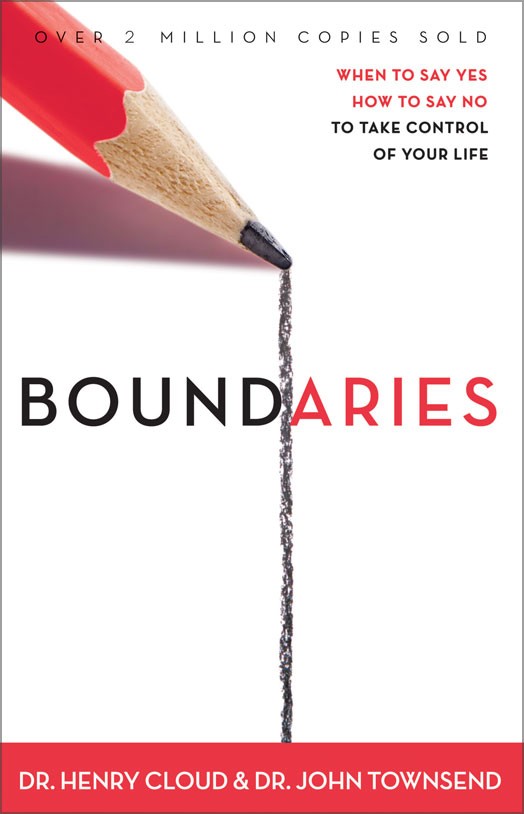Check out our groups and events in 2024! Crossroads Counseling is offering the Beyond Trauma Group Therapy, Men’s Group Therapy, Women’s Group Therapy, Teen Girls Group Therapy, and the Hold Me Tight Couples Seminar. To learn more click here or contact our office at 623-680-3486,text 623-688-5115, or email info@crossroadsfcc.com.
Boundaries
“‘No’ is a complete sentence!”
Annie Lamont
Do You Struggle With Creating And Maintaining Healthy Boundaries?
Do you feel out of balance, struggle to maintain appropriate boundaries, or think that you are overly hard on yourself? Is it hard for you to meaningfully connect with friends, colleagues, romantic partners or other people in your life? Do you constantly find yourself in toxic relationships, even though you’ve vowed to be more careful about the people you allow into your life? Do you often feel anxious, lonely or overwhelmed? Maybe you find yourself stuck in a depression or cannot let go of an addiction. Do you suffer from a negative, internal dialogue that you feel you have no control over? Perhaps you’re holding onto pain and anger that you are unable to release, although you want to be free of the burden. Are you obsessed with the past, constantly thinking to yourself “what if…” and “if only I would have…?” Do you wish that you could create balanced relationships where you feel that you are an equal, not a subordinate?
Many people struggle to find balance in their lives. When out of balance, it’s not uncommon to engage in painful and ineffective relationships over and over again, which are hard to break free of and understand. Oftentimes, reoccurring bad relationships, poor self-esteem and a lack of balance are a result of unhealthy personal boundaries.
Boundaries come in both external and internal forms. There are the external boundaries that we create to help us navigate both our platonic and romantic relationships. There are also internal boundaries that inform and affect our thoughts and feelings about ourselves.
Establishing appropriate boundaries in all areas of your life is important. Developing and maintaining healthy boundaries can help you to feel at ease with yourself and within your important relationships. The ability to find balance through healthy internal and external boundaries can contribute to an overall positive sense of self and, in turn, healthy self-esteem. With a willingness to explore the thoughts, feelings and patterns that are not serving you and the right approach, therapy can help you better understand the way that you respond to and interact with the world. With help, you can develop a better relationship with yourself and the people around you.
Learning To Establish Appropriate Boundaries
Your Crossroads therapist can help you explore the boundaries you’ve created over time and develop an increased self-awareness. You can begin to identify and understand the reasoning behind the ways you interact with the people in your life, the world and yourself.
Oftentimes, exploring and understanding boundaries means looking at how you grew up. Childhood serves as the building blocks for who we become. However, children are unable to consciously shape their perception of boundaries. Instead, they tend to internalize what they see modeled around them.
For example, if your parents had trouble setting personal boundaries or demonstrated unstable relationships in their lives, you may have not seen what healthy building blocks look like. This may explain why establishing healthy habits seems to be more difficult for you than for others. Furthermore, we often look for people in our adult life that mimic the relationships we experienced when we were young. Our early relationships are what feel known and, even if unhealthy, can become natural and normal for us.
Depending on what boundaries you did or did not learn when you were young, it may be necessary to re-learn healthy boundaries as an adult. Exploring how you feel about yourself and in your relationships is the best way to begin to learn how to establish and maintain healthy boundaries.
Your Crossroads therapist can also help you tune into your body, how it feels when it reacts in a negative or positive way, and how these sensations make you feel emotionally. We can help you identify the thoughts, relationships, situations and patterns that create negative feelings, and how the construction of healthy boundaries can help you develop more kindness toward yourself and interact with others in more effective and positive ways. Truly understanding your thoughts, feelings and patterns can create the space to acknowledge and address unwanted habits. Once you understand yourself better, you will be better equipped to communicate your feelings outwardly and move forward with more compassion and confidence in your life.
Creating healthy boundaries is about building up necessary walls, as well as breaking some down. Everyone is different, but with a willingness for self-exploration and the right therapist and approach, you can develop appropriate boundaries and find balance your life. It is very possible to connect with your intrinsic self, effectively engage with the people and world around you, and enjoy healthier self-esteem and happiness.
But, You May Still Have Concerns…
I want to start therapy, but I’m not sure if the cost is worth it.
Oftentimes, mental health is not considered to be as important as physical health. It is easier for many people to neglect the emotional and mental aspects of their wellbeing until something truly catastrophic happens.
If you have a virus that doesn’t seem to be improving, wouldn’t you seek professional help? The same concept is true for the mind. If you find yourself unable to process a difficult mental or emotional issue, a therapist can provide you with so much relief. Therapy is an investment in yourself and overall health. You deserve to feel happy and confident. Let us help you.
Therapy may help establish boundaries in the short run, but I don’t feel it will make a difference overall.
Many of the struggles that people seek therapy for are deep-rooted and feel overwhelming. It may feel daunting and difficult to fathom real change with such long-established habits. At Crossroads, we’ll meet you where you are. Addressing immediate concerns is important to increase emotional stability. Tracing the origins of the distress is equally relevant, helping to lower the level of distress giving you more control to manage the stressor when it occurs.
I am not comfortable with the idea of therapy.
It is natural to be fearful of the unknown. If you have never experienced therapy, having some apprehension about opening up to an outside source is normal. You are not alone in this. Fear causes many of us to brush big issues aside, rather than work though them. However, seeking therapy, even if it makes you feel anxious, means that you are acknowledging that there is a problem. Making the decision to seek help is a courageous act of self-care.
We know that effective therapy is about working towards long-term, sustainable change. At Crossroads, we will provide you with the safe, warm, confidential and nonjudgmental environment needed to work though difficult emotions and entrenched patterns. We believe that finding the right therapist is pivotal to the healing process.
We invite you to call us for a free 20-minute phone consultation to talk with a therapist about your specific needs. Our therapist can address how he or she approaches the therapeutic relationship and answer any questions that you might have about boundaries, balance and our practice.
Boundaries counseling through Crossroads Counseling is based on the New York Times Best Seller Boundaries Dr. Henry Cloud and Dr. John Townsend. It is strongly recommended that Boundaries be read by process group participants.
Phoenix Location
- 34406 N 27th Dr, Suite 140, Building #6. Phoenix, AZ 85085
- Call: 623-680-3486
Scottsdale Location
- 14300 N Northsight Blvd, Suite 215. Scottsdale, AZ 85260
- Call: 623-680-3486
Ask us about our intensive counseling programs for couples. We also have intensive counseling for individuals suffering with PTSD/trauma called the Beyond Trauma program. For more information please contact our office at 623-680-3486,text 623-688-5115, or email info@crossroadsfcc.com.
Now accepting new clients. In person in Scottsdale and Phoenix. Online virtual sessions available in all of Arizona. Contact our office at 623-680-3486,text 623-688-5115, or email info@crossroadsfcc.com.
Phone Consultation
We offer a complementary 20 minute phone consultation with one of our therapists or counselors Call 623-680-3486 or text 623-688-5115.

